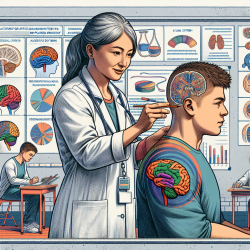Understanding Habit Formation for Enhanced Therapy Practices
In the world of therapy, the ability to form and sustain habits can significantly impact both practitioners and their clients. Drawing insights from the research article "Habit—Physiologically Considered" by John Addington Symonds, we can delve into the physiological underpinnings of habits and how they can be leveraged to improve therapeutic outcomes.
The Physiological Basis of Habits
Symonds' research, delivered as a lecture in 1853, provides a foundational understanding of how habits are not merely behavioral patterns but are deeply rooted in our physiology. Habits, according to Symonds, are formed through repeated actions that eventually become automatic responses. This automaticity is a result of changes in the neural pathways, making certain actions almost reflexive over time.
For practitioners, understanding this physiological basis is crucial. It allows them to appreciate that changing a habit is not just about willpower but involves altering the brain's structure. This knowledge can empower therapists to design interventions that are more aligned with how habits are naturally formed and sustained.
Implementing Habit-Based Strategies in Therapy
Here are some strategies practitioners can implement to harness the power of habits in therapy:
- Consistency is Key: Encourage clients to practice new behaviors consistently. This could be through daily exercises or regular therapy sessions, reinforcing the new habit until it becomes automatic.
- Small Steps Lead to Big Changes: Break down the desired habit into smaller, manageable steps. This approach not only makes the process less daunting but also allows for incremental changes that are more sustainable.
- Positive Reinforcement: Use rewards and positive feedback to reinforce new habits. This can help strengthen the neural pathways associated with the desired behavior.
- Mindful Reflection: Encourage clients to reflect on their progress and the changes they notice in their behavior. This reflection can help solidify the habit and increase self-awareness.
Encouraging Further Research
While Symonds' work provides a solid foundation, the field of habit formation has evolved significantly. Practitioners are encouraged to engage with contemporary research to explore new insights and methodologies. This continuous learning will not only enhance their practice but also provide clients with the most effective therapeutic interventions.
By integrating the physiological understanding of habits with modern therapeutic techniques, practitioners can create a more robust framework for helping clients achieve their goals.
To read the original research paper, please follow this link: Habit—Physiologically Considered.










